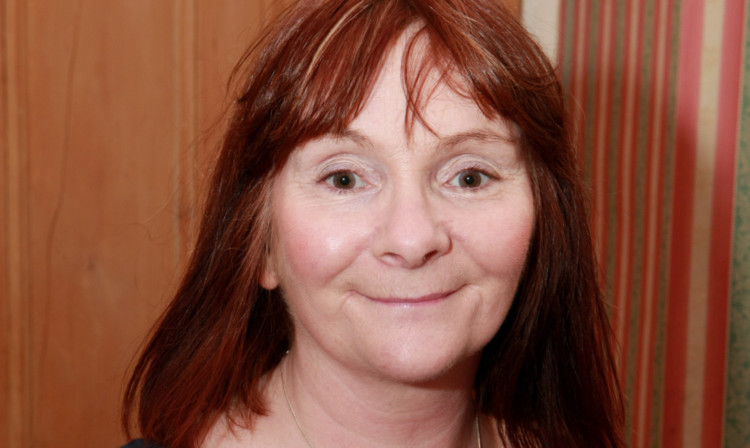A former Dundee nurse cleared of stealing medication from a Ninewells cancer ward has spoken of her relief.
The Nursing and Midwifery Council ruled there was no case answer in the case of Pauline Ballie, 52 at a hearing in Edinburgh this week.
Mrs Ballie had been accused of misappropriating dihydrocodeine 30mg tablets from ward 32 on a number of occasions between July 22 2011 and August 11 2011.
A second charge alleged her actions were dishonest and in the light of the charges it was alleged her fitness to practise was impaired by reason of her misconduct.
However after two days of the hearing the NMC ruled there was “no case to answer.”
Mrs Ballie said: “It’s been a long three years. I suffer from MS and I found it particularly exhausting. It’s made me feel extremely ill.”
The allegations arose at a time when Mrs Ballie was employed as a Band 6 registered nurse on Ward 32.
The tablets in question, dihydrocodeine, are classified as “attractive stock” and kept apart from other stock within the ward in a cupboard only accessible by a separate key.
Following a review in June 2011 a number of drug discrepancies were identified.
A report from the NMC said: “In particular, it was noted that there was a regular significant delivery of dihydrocodeine 30mg tablets (an opiate used for pain relief) to Ward 32.
“The volume and frequency of delivery was increasing but there was no evidence to suggest that it was being prescribed at the same rate.
“It is of note that dihydrocodeine was not in regular use on Ward 32 as it was not strong enough for effective use with the patient group.
“However, the figures showed that during January to December 2010, 3,058 dihydrocodeine tablets were delivered to Ward 32 and during January to June 2011, 3,480 dihydrocodeine tablets were delivered.”
The report said that during a meeting on July 22 2011 which was attended by members of the nursing team, pharmacy team, Tayside Police and Counter Fraud Services a decision was taken to conduct a period of monitoring the dihydrocodeine stock within Ward 32.
Staff were not informed of the covert monitoring.
The report said: “During the monitoring period there were eight occasions in which dihydrocodeine went missing from Ward 32, with a total of 370 tablets unaccounted for.”
The report also stated that by looking at shift patterns it had been concluded that Mrs Ballie was responsible for the missing dihydrocodeine but there had been no eye-witness testimony.
Mrs Ballie was suspended on August 12 2011 and NHS Tayside subsequently accepted her application for ill-health retirement.
The report added drugs cupboard keys had at times been left on desks and underneath folders and that the drugs cupboard had been left open at times due to the fact the door was stiff.
At the hearing Mrs Ballie questioned why an external team had not been brought in to conduct monitoring and why pharmacy staff, doctors and health care assistants had not been monitored as well.
The panel concluded that the evidence presented was “tenuous, inherently weak and not of the requisite standard to find the charges proved,” and it ruled there was no case to answer.
Mrs Ballie praised the way the panel conducted the hearing.
“The NMC were so fair and so understanding,” she said.
